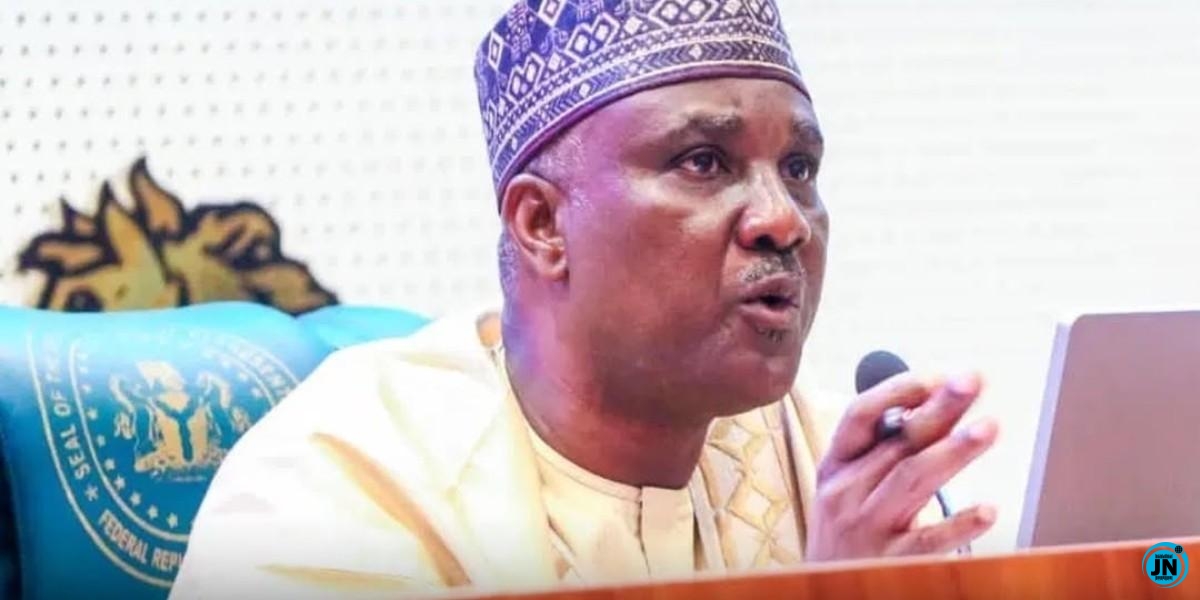
The Speaker of the House of Representatives, Tajudeen Abbas, has come forward to clarify his recent remarks about Nigeria’s debt situation, firmly denying reports that suggested he condemned government borrowing. According to him, his words were taken out of context and misinterpreted by sections of the media, leading to unnecessary controversy.
Speaking at the 11th Annual Conference and General Assembly of the West Africa Association of Public Accounts Committees, Speaker Abbas had earlier raised serious concerns about Nigeria’s escalating public debt, describing the situation as “critical” and stressing the need for urgent reforms in borrowing practices, debt management, and parliamentary oversight.
In his speech, the Speaker noted that as of the first quarter of 2025, Nigeria’s total public debt had surged to ₦149.39 trillion, which is equivalent to about US$97 billion. This marks a sharp increase from ₦121.7 trillion recorded in the previous year. He further emphasized that the debt-to-GDP ratio now stands at approximately 52 percent—well above the statutory ceiling of 40 percent—an alarming signal for the nation’s financial stability.
“This is not just a budgetary concern but a structural crisis that requires urgent parliamentary attention and coordinated reform. Nigeria’s rising debt profile calls for improved transparency, stronger checks, and a framework that ensures accountability,” Abbas stated during the conference.
However, in a statement released later by his Special Adviser on New Media, Jowosimi Enitan, the Speaker’s position was clarified. Enitan insisted that the Speaker never condemned borrowing itself. Instead, his comments focused on the importance of responsible management of debt to drive growth and development.
“For the record, Speaker Abbas Tajudeen, PhD, GCON, never condemned borrowing. His remarks were about ensuring that borrowing is done responsibly, transparently, and with clear oversight so that the debt burden translates into tangible development for Nigerians,” Enitan explained.
According to the Adviser, the Speaker’s remarks—delivered at the event through PDP chieftain and lawmaker, MHR Babatunde Salam—underscored that public debt, if managed prudently, could serve as a strategic tool for national growth and infrastructural advancement. He stressed that the legislature has a constitutional role to make sure borrowed funds are channeled into meaningful projects like roads, schools, hospitals, and innovation hubs that directly impact citizens.
Enitan also pointed out that the administration of President Bola Ahmed Tinubu is already working on strategies to reduce overreliance on borrowing by aggressively improving non-oil revenue streams. He revealed that for the first time in decades, Nigeria achieved its 2025 revenue target ahead of schedule without depending heavily on loans—a major indicator of responsible fiscal management and economic discipline.
“President Bola Ahmed Tinubu, GCFR, is already working assiduously to reduce reliance on borrowing through a robust non-oil revenue drive – proof of responsible fiscal management,” Enitan said. “This achievement shows that with courage, discipline, and the right policies, Nigeria can reduce dependence on external loans and build economic sovereignty.”
Enitan concluded by emphasizing that the Speaker’s call was not a condemnation of borrowing but rather a push for stronger oversight, accountability, and transparency. “The Speaker’s call was not against borrowing, but for stronger oversight, transparency, and accountability so that debt translates into real development—roads, schools, hospitals, and innovation. Oversight of public debt is both a constitutional duty and a moral responsibility of parliament. This is about protecting Nigeria’s financial future, not pandering to the gallery of mischief-makers,” he added.
The clarification has since set the record straight, reiterating that while Speaker Abbas acknowledges the risks of rising debt, he equally believes that with careful management and parliamentary vigilance, borrowing can still serve as a catalyst for Nigeria’s long-term development.